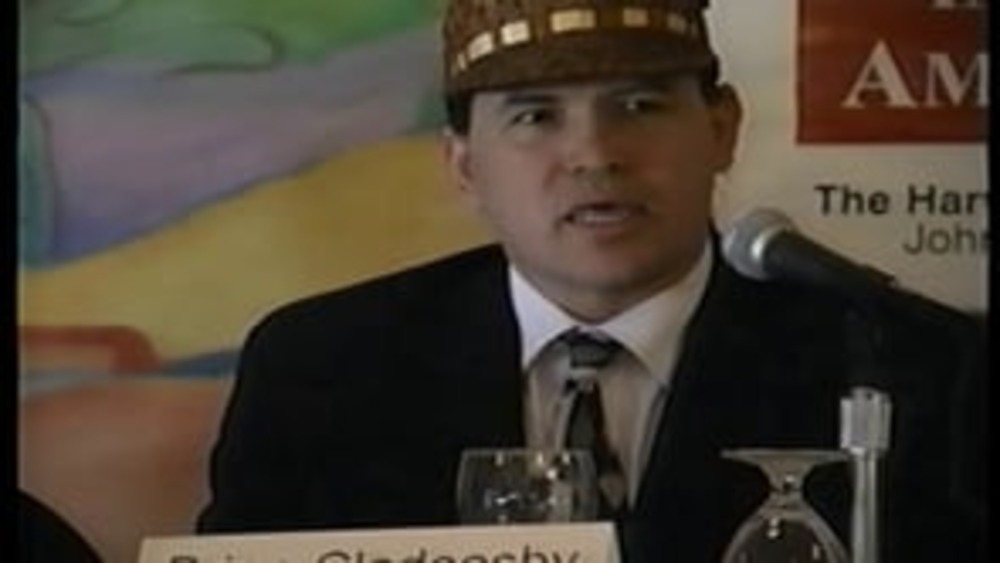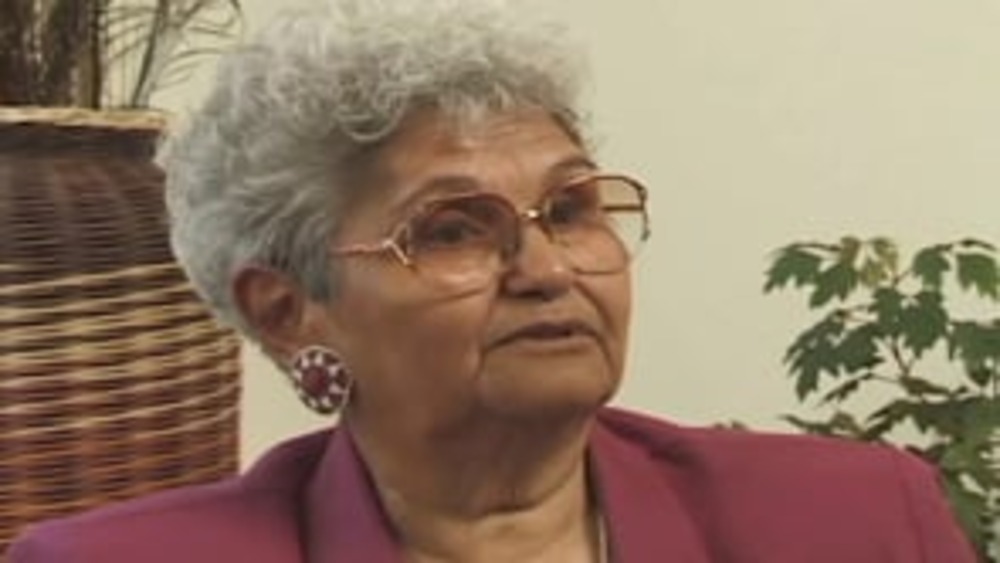Indigenous Governance Database
Kathryn Harrison
Thumbnail

Honoring Nations: What is Good Tribal Governance and Why is it Important?: Tribal Leaders' Perspectives
Moderator Joseph P. Kalt facilitates a rich discussion by an impressive panel of Native nation leaders about the role leaders play in building and sustaining successful tribal programs.
Thumbnail

Great Tribal Leaders of Modern Times: Kathryn Harrison
Produced by the Institute for Tribal Government at Portland State University in 2004, the landmark “Great Tribal Leaders of Modern Times” interview series presents the oral histories of contemporary leaders who have played instrumental roles in Native nations' struggles for sovereignty, self-…
